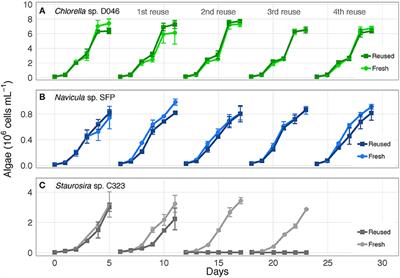ORIGINAL RESEARCH
Published on 12 Jun 2019
Co-digestion of Wastewater-Grown Filamentous Algae With Sewage Sludge Improves Biomethane Production and Energy Balance Compared to Thermal, Chemical, or Thermochemical Pretreatments
doi 10.3389/fenrg.2019.00047
- 5,919 views
- 36 citations




